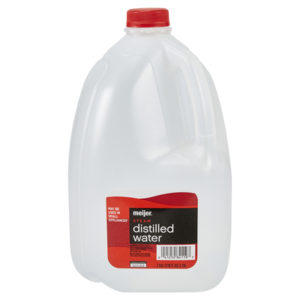Keto for chemo, the problem with homeopathy trials, e-cigs’ new competition, and more
23 Mar 2022
Posted by Andrew Kantor
Move over, vapin’
What do we want? Nicotine pouches!
When do we want them? Real soon!
Combining the best* parts of smoking (lots of nicotine) and chewing tobacco (shoving something between your teeth and gums), nicotine pouches are slowly gaining traction.
And by “slowly” we mean “very quickly,” according to a Rutgers study. Since becoming widely available a couple of years ago, sales, they say, are growing exponentially.
Fun facts:
“Smokers ages 18 to 44 were three times more likely to use nicotine pouches than older smokers” and the people most interested were those looking to quit (as opposed to those just looking for a ‘safe’ way to take nicotine).
(Looking for a gift for the new pouch user? May we suggest the lovely Bulk Savor Silver Spitter spittoon, available at Home Depot, or the portable Spit Bud Spittoon from Walmart?)
* This is sarcasm.
Immunization training for techs comes to Douglas
Technicians down south — we haven’t forgotten you! GPhA’s got it’s hot hot hot immunization training session, coming to Douglas, Ga.*, live on Saturday, April 2.
Be ready for Rho, Upsilon, and the eventual Andromeda strain: Get your vaccine training, bragging rights, and a spiffy certificate with GPhA’s Immunization Delivery Training for Pharmacy Technicians. It’s a total of 5½ hours of CE, including home-study and live training.
Space is limited, so don’t wait — click here for all of the details and to register now!
* At the Grace Pointe Church, kitty-corner from Space Cow Creamery
Boosting chemo
Switching to eating high-fat, low-carb, low-protein foods (yes, that’s a keto diet) seems to help kill pancreatic cancer cells — at least, when combined with chemotherapy of cisplatin, gemcitabine, and nab-paclitaxel.
Apparently (a Princeton-led, pre-clinical study found) the diet “changes pancreatic cancer metabolism and its response to chemotherapy” by limiting the availability of glucose.
Hop into the W.A.B.A.C. Machine…
The idea that the right diet can boost cancer drugs … well, that’s not new. Back in the Long Long Ago (2018), an MIT study found that “supplementing mouse chow with the amino acid histidine made a chemotherapy called methotrexate more effective against leukaemia.”
And in 2021, researchers at Memorial Sloan Kettering began testing a failed chemotherapy — phosphatidylinositol 3-kinase — with a keto diet, “hop[ing] the diet will render tumors more vulnerable to the drug.”
Bottom line:
Still, compelling results in patients will be needed to overcome some oncologists’ view of special diets as fringy alternative medicine.
Recall #1: Jergens lotion
Some 3- and 10-oz bottles of Jergens Ultra Healing Moisturizer could be infected with Pluralibacter gergoviae bacteria — a potential danger for someone with a weakened immune system. Check the FDA site for the recalled lot numbers.
Just call it “dihydrogen monoxide therapy”
Ah, homeopathy — the idea that water can cure this, that, or the other thing simply by having a ‘memory’ of an appropriate chemical (even if it’s diluted to the point of non-existence).
And yet there are people who believe in it. In fact, there have been studies that show it works.
A group of Austrian researchers (and one American) was curious about those studies — so they did what scientists do: They conducted a meta-analysis. Turns out, not surprisingly, that there’s a heck of a lot of bias in what’s out there. The biggest issue: Trials that show a homeopathic product don’t work just aren’t published. The rest are a bit iffy, too.
Many clinical trials haven’t been registered, with the main outcome changed in a quarter of those that have been. And many remain unpublished. All this indicates “a concerning lack of scientific and ethical standards in the field of homeopathy and a high risk for reporting bias,” say the researchers.
Or, as the BMJ put it, “Poor research practice suggests true impact of homeopathy may be ‘substantially’ overestimated.”

Recall #2: Accuretic
ICYMI, Pfizer is recalling some lots of blood pressure drug Accuretic (quinapril and hydrochlorothiazide, and including two generics) “due to the presence of elevated levels of nitrosamine, a potential cancer-causing impurity.”
I feel the need, the need for C
Everyone’s favorite acid — ascorbic — seems to play a role in cognitive impairment. Or, rather, the lack of it does. So found Aussie researchers after a small study (160 patients over age 75).
“Our findings showed that cognitive function scores were significantly lower among patients who were vitamin C deficient, with further analysis suggesting vitamin C deficiency was almost 3 times more likely to be associated with cognitive impairment.”
In fact, some of the patients’ vitamin C levels were low enough that they were at risk of scurvy.
Of course, the ol’ cause/effect question is out there: They can’t say that vitamin C deficiency causes impairment, but they can say that “vitamin C deficiency is common and is associated with cognitive impairment in older hospitalised patients.”

By law, any story about vitamin C must include pictures of citrus fruit.
And while we’re on the subject…
A potential treatment for Alzheimer’s (yes, yet another) comes from LSU and researchers in Sweden: a nasal spray that “arrested memory loss and brain degeneration in an experimental model.”
What’s in the spray? If you guessed “specialized pro-resolving lipid mediators,” give yourself 100 Internet Points. These are essentially fatty acids that can reduce inflammation, and what’s notable is that they’re often in short supply in people with Alzheimer’s.
Like most Alzheimer’s breakthroughs, this is still experimental — but, like so many others, it’s another step toward a treatment … and maybe even a cure.
Here comes the pill
Remdesivir — the 800-pound gorilla of Covid-19 treatments — may soon be available in pill form. Scientists at UNC-Chapel Hill are testing it right now, and it’s looking to be as effective as molnupiravir (already a pill) … at least for mice.
New life for old cancer drug
A treatment for canine glioma could be coming to humans as a glioblastoma treatment.
A team of biologists from Virginia-Maryland College of Veterinary Medicine and Wake Forest School of Medicine has been treating dogs with a drug*, a version of which had been unsuccessfully tried in humans.
The problem with the human trial wasn’t that the drug wasn’t effective, but that “It cannot be given orally or injected, which presents a challenge.” (Indeed.) But now, with some dog work under their belts, scientists have an answer: a technique called convection-enhanced delivery where catheters are inserted into the tumor tissue. (They’ve also upgraded the drug to target four receptors instead of two.)
Said team leader John Rossmeisl:
“[T]his is the ultimate embodiment of what I want to do. I put something in dogs that not only helps dogs, but it might help someone’s father, mother, sister, brother, daughter, or son.”
* It has no name, just “IL-13 mutant and ephrin A1 (EFNA1)-based bacterial cytotoxins.”
Today’s odd non-pharma story
Is there a perfect alarm tone? Sleep and sensory researchers at Australia’s RMIT University decided to find out, asking, “what type of alarm provides peak alertness upon waking?”
It needs an energetic melody*, should be between 100 and 120 beats per minute, and it has to be at the right frequency — about 500Hz does the trick.
Of course they made one. You can listen to it on YouTube.


